16th Annual Ethics and Responsible Forum 2018
The Ethics of Fake News: Who Controls the Future of Democracy?
"What is the impact on democratic discourse when fact and fiction, truth and untruth, opinion and evidence cannot be differentiated or discerned?"
— Shyam Kamath, Dean, College of Business
The 16th annual Ethics and Responsible Business Forum was held on March 14, 2018, at the CSUMB University Center. Attended by 350 students, staff, and faculty, as well as members of the local community, this year’s Forum focused on the timely and relevant topic of fake news—its impact on a democratic society and the implications for ethics and responsibility in journalism.
Public concern is increasing over the pace at which false or uncorroborated news is spreading, as well as the sheer ease with which some actors perceive and label actual facts as fake. The phenomenon of fake news can be attributed to recent trends such as the fragmentation and polarization of news outlets and their audiences, as well as the rapid development of social media and blogs to support news sharing.
Two recent examples of fake news that were raised were ‘pizzagate,’ in which fabricated information about a pizzeria was responded to with real guns, and Russian meddling that potentially swayed results of US and European elections. The increased skepticism on once unquestioned and trusted institutions highlights the material impact of false information in society and raises the call for an urgent discussion and debate on how to mitigate its effects. A particular point of focus in this discussion was the threat fake news imposes on the democratic process, as democracy is predicated upon the ability of officials and activists to convey ideas through communication channels that do not twist their messages and a public who are informed about issues in order to debate and make informed decisions.
While some have blamed technology (e.g., fake social media accounts run by bots) and profit-driven tech giants such as Google, Facebook, and Twitter, who benefit from “surveillance capitalism,” others criticize the media for not taking time for in-depth reporting and fact-checking, due to an ever-shortening news cycle that encourages pulling out all the stops to publish “breaking” news. Yet others blame the government for lack of transparency and for spreading incomplete or incorrect information leading to a Big Brother “surveillance state.”
Keynote Speakers and Panelists Debate Their Views
Keynote speakers Renée DiResta, tech entrepreneur and Head of Policy at Data for Democracy, and Mark Scarberry, Professor of Law at the Pepperdine University School of Law, were invited to debate their views. The two contributed their insights to a discussion around potential solutions: doing nothing and leaving news consumers to responsibly decide what is “real” and what is “fake” news; technological intervention; media censoring; anti-fake news activism; new forms of journalism; tighter regulations or some combination of these. What responsibilities do search engines and social media platforms have?
Enriching the discussion were comments made by panelists, David Greene, Senior Staff Attorney and Civil Liberties Director; Mridula Mascarenhas, Assistant Professor in the Department of Humanities and Communication at California State University, Monterey Bay; and Sarah Rubin, Editor of Monterey County Weekly. The discussion was moderated by Erik Cushman, Publisher at Monterey County Weekly.
If we perceive social networks to be the new public square, DiResta believes they should be treated in the same manner we treat other public spheres, i.e., regulation through social norms and rules. She argued that the First Amendment may not be the appropriate framing to address the issue of fake news on the internet because social platforms are governed by terms of service. Drawing comparisons to regulation after the collapse of the financial markets, DiResta asserted that the marketplace for ideas is currently polluted and susceptible to manipulation. Doing nothing is no longer an option, so DiResta favors external governance of social platforms to ensure transparency and accountability. She pointed out that this approach is not new because, as it stands, there is no neutral algorithm, as platforms are already moderating what we see. DiResta concluded that the provider platforms are in the best position to remediate harms, specifically, through better moderation, not censorship, to fix the dissemination of false news.
Scarberry offered a framework for approaching social media regulation by asking whether it is wise, constitutional, and practical. Building on his legal expertise, Scarberry focused on the constitutional aspect. Scarberry also carefully noted that the First Amendment does not protect censorship from non-governmental bodies for platforms like Youtube, Facebook, and Twitter. However, he took the First Amendment stance, by arguing that government censorship, in general, is a cure that will be worse than the disease; in allowing the government to decide what is true, the potential for abuse of power is simply too great. In the case of fake news on social networks, Scarberry pointed out that while social media platform companies cannot be forced to censor, they are within their rights to do so.
According to him, the question we need to ask is will social media platforms use these rights responsibly, and do we trust these oligarchs to be the arbiters of truth?
At the conclusion of this lively debate, the audience remained split regarding which side offered the best solution. Yet the discussion highlighted the necessary starting point of having a clear conceptualization and consensus on what comprises ‘fake news’ to move forward towards problem-solving. The audience left the venue reminded of their responsibility to be discerning users and distributors of information, and the campus community was invigorated with a commitment to the important task of equipping themselves and students with information literacy.
Moderator
Erik Cushman
Publisher, Monterey County Weekly
Keynote Speakers
Renée DiResta
Head of Policy, Data for Democracy
Mark Scarberry
Professor of Law, Pepperdine University
Panelists
Sarah Rubin
Editor & Journalist, Monterey County Weekly
David Greene
Attorney, Electronic Frontier Foundation
2018 Ethics and Responsible Business Forum
16th Annual Ethics and Responsible Business Forum
The Ethics of Fake News: Who Controls the Future of Democracy?
March 14th, 2018
Questions addressed
- What impact does fake news have on the public’s understanding of the world and on the proper functioning of democracy?
- Is it viable to use computer-generated algorithms to root out 'fake news' from genuine reporting?
- How can we educate people on how to assess and use different sources of news?
- Are governments themselves the perpetrators of fake news and what can be done to solve this problem?
KEYNOTE SPEAKERS
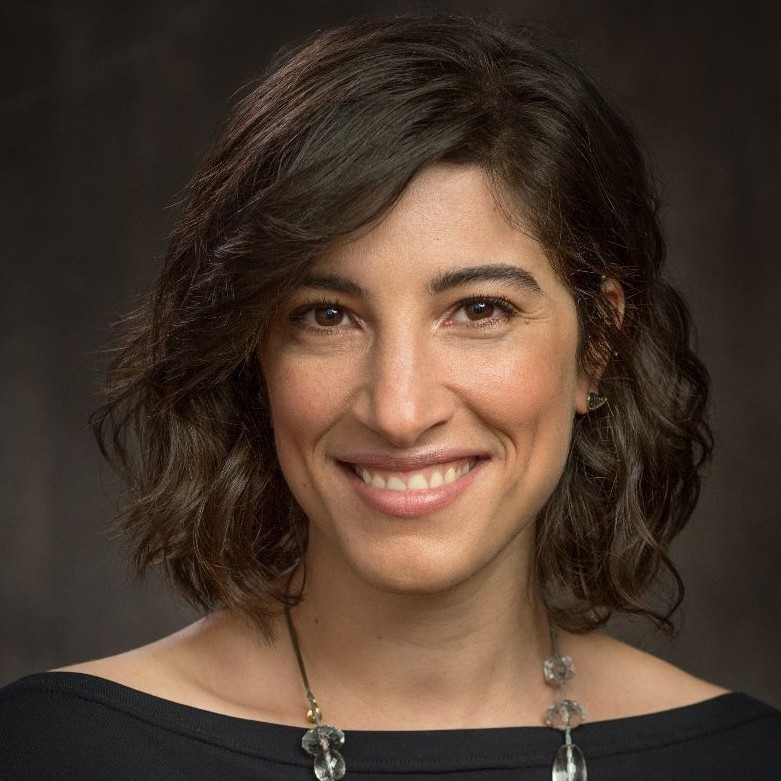
Renee DiResta
Renee DiResta is a tech entrepreneur and researcher who lives in San Francisco. As Head of Policy at Data for Democracy and a Staff Associate at Columbia University Data Science Institute, Renee researches the spread of disinformation across social networks. She has advised Congress, the State Department, ARCYBER, and academic, community and business leaders...
read more...
about understanding and responding to computational propaganda operations. In 2017, Renee was named a Presidential Leadership Scholar, and had the opportunity to continue her work with the support of the Presidents Bush, President Clinton, and the LBJ Foundation. Previously, Renee was part of the founding team of venture-backed supply chain logistics technology platform Haven, where she ran business development and marketing. Renee has also been an investor at O’Reilly AlphaTech Ventures (OATV), focused on hardware and logistics startups, and an emerging markets derivatives trader at Jane Street Capital. Her work and writing have been featured in the New York Times, Politico, Wired, Slate, Fast Company, Inc., and the Economist. She is the author of the O’Reilly book “The Hardware Startup: Building Your Product, Business, and Brand”, and lives on the web at http://reneediresta.com and @noUpside.
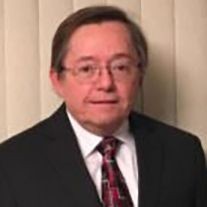
Mark Scarberry
Mark Scarberry is a Professor of Law at the Pepperdine University School of Law. He spent two years at Caltech in Pasadena before transferring to Occidental College to get a degree in English literature. He then attended the UCLA School of Law, where he graduated first in his class. After practicing law with Jones Day, Scarberry joined the Pepperdine law faculty.
read more...
He focuses on constitutional law and on bankruptcy law, particularly Chapter 11 business reorganizations. He has served as the chair of the Constitutional Law Section of the Association of American Law Schools, as co-chair of the Law & Religion Section, and as a member of the first executive committee of the recently formed Election Law Section. For six years, Scarberry was the moderator (or chair) of the Presbyterian Church USA’s Advisory Committee on Litigation, which advises the denominational leadership on issues involving the U.S. Constitution and on amicus briefs that may be filed in the Supreme Court. He was deeply involved in the 2000 election dispute, helping to develop the theory embraced by three of the Justices in their Bush v. Gore concurring opinion. He testified before the Senate Judiciary Committee on legislation designed to deal with the 2007-2010 home mortgage crisis, and many years before had testified before the House Judiciary Committee's Subcommittee on the Constitution, as it was considering whether to propose a school prayer amendment. Scarberry currently moderates the Conlawprof listserv, which has over 500 members, including prominent professors of constitutional law (most of whom are harder to herd than cats).
MODERATOR
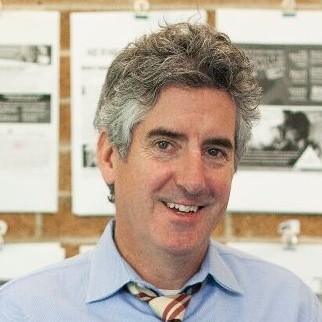
Erik Cushman
Erik Cushman’s first job in the media world was as a paperboy delivering the Washington Post in the DC suburb of Bethesda in 1974. Every morning he got to read Woodward and Bernstein’s reporting on Watergate before almost anyone else. Erik Cushman’s current job is publisher at Monterey County Weekly. He still loves being the first to read the paper before it gets delivered all over town.
read more...
He has a degree in Political Science from the University of Montana. After graduating Erik was founding partner and publisher of the Missoula Independent. He sold that paper some years later and then worked as general manager of the weekly paper in Colorado Springs, Colorado. He moved to California to join what was then called Coast Weekly in 1999.
In addition to his job duties, Erik Cushman is very active in the community. He has served on lots of local boards, coached soccer, sat on the school site council etc. These days his volunteer time is spent primarily in promoting economic development as the chair of the Monterey County Workforce Development Board and as a member of the executive committee of the California News Publishers Association.
He is married to Kristin Cushman, the CEO of Blue Strike Environmental; they have 17 and 19-year-old daughters and live in Pacific Grove.
PANELISTS
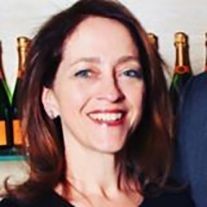
Mary Duan
Mary Duan has been a journalist for 30 years, including stints as a crime reporter in Los Angeles and a business and technology journalist in San Jose. Most recently, she was editor of the Monterey County Weekly.
read more...
During her tenure there the paper won multiple awards from the California Newspaper Publishers Association, the Association of Alternative Newsmedia and the First Amendment Coalition. She is a graduate of the Medill School of Journalism at Northwestern University.
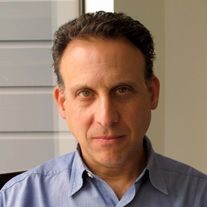
David Greene
David Greene, Senior Staff Attorney and Civil Liberties Director, has significant experience litigating First Amendment issues in state and federal trial and appellate courts and is one of the country's leading advocates for and commentators on freedom of expression in the arts.
read more...
David was a founding member, with David Sobel and Shari Steele, of the Internet Free Expression Alliance, and currently serves on the Northern California Society for Professional Journalists Freedom of Information Committee, the steering committee of the Free Expression Network, the governing committee of the ABA Forum on Communications Law, and on advisory boards for several arts and free speech organizations across the country. David is also an adjunct professor at the University of San Francisco School of Law, where he teaches classes in First Amendment and media law and an instructor in the journalism department at San Francisco State University. He has written and lectured extensively on many areas of First Amendment Law, including as a contributor to the International Encyclopedia of Censorship. Before joining EFF, David was for twelve years the Executive Director and Lead Staff Counsel for First Amendment Project, where he worked with EFF on numerous cases including Bunner v. DVDCCA. David also previously served as program director of the National Campaign for Freedom of Expression where he was the principal contributor and general editor of the NCFE Quarterly and the principal author of the NCFE Handbook to Understanding, Preparing for and Responding to Challenges to your Freedom of Artistic Expression. He also practiced with the firms Bryan Cave LLP and Hancock, Rothert & Bunshoft. He is a 1991 graduate of Duke University School of Law.
David's work has been recognized by California Lawyer magazine as a 2013 California Lawyer Attorney of the Year, and by the SPJ Northern California as the recipient of its 2007 James Madison Freedom of information Award for Legal Counsel. He was also awarded The Hon. Ira A. Brown Adjunct Faculty Award by USF Law School in 2012.
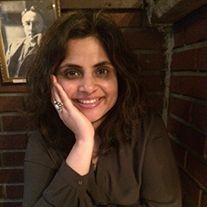
Mridula Masarenhas
Mridula Mascarenhas is an Assistant Professor in the Department of Humanities and Communication at California State University, Monterey Bay. She teaches classes in Rhetoric and Communication Ethics.
read more...
She earned her PhD from the University of Wisconsin, Milwaukee, in Rhetorical Studies. Her research interests focus on public discourse in political and religious contexts. She is also developing and exploring an interest in the intersections between communication ethics and technology.
DEANS' Welcome Messages
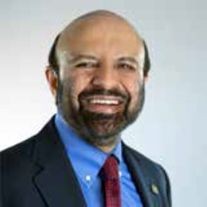
Dr. Shyam Kamath, Dean
College of Business
It is my privilege to join my fellow deans in welcoming you to this intellectual Chautauqua that will search for answers to one of the most important questions of our time.
read more...
Arts, humanities and social science; business; and science constitute three critical pillars of our democracy. The colleges that represent these three areas have come together again to bring leading thinkers to the Monterey Peninsula to debate the issues underlying a critical threat to democracy – “fake news” that has the potential to destroy it.
What is the impact on democratic discourse when fact and fiction, truth and untruth, opinion and evidence cannot be differentiated or discerned? Can the discernment and regulation of ‘fake news” be squared with our First Amendment rights? What responsibilities do journalists, media companies, search engines and social media platforms have in self-regulating “fake news”, particularly those which are accessible to young people? These are some of the questions that the “fake news” forum will tackle.
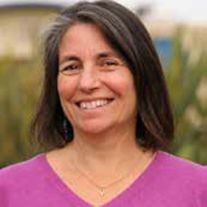
Dr. Ilene Feinman, Dean
College of Arts, Humanities, and Social Sciences
I am honored to join my fellow deans in welcoming you to the 16th Annual Ethics and Responsible Business Forum.
read more...
At its best, the Forum represents engagement across colleges and disciplines to address important issues of our time and provide an opportunity to bring together our knowledge and skills to explore the ethical underpinnings of business practices. This year’s presentation raises key questions regarding the impact of “fake news” and the importance of sorting out reliable sources for information essential to democratic deliberations.
Thank you for joining us for this important conversation.
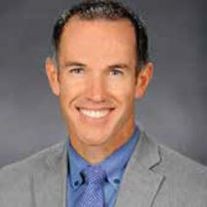
Dr. Andrew Lawson, Dean
College of Science
In stressing the importance of education in a democracy, Thomas Jefferson once wrote "light and liberty go together." I join Dean Feinman and Dean Kamath in welcoming you and our esteemed speakers to the 16th annual Ethics and Business Forum.
read more...
The pursuit for an informed electorate has been a central struggle in our democracy since its founding. Similarly, information and disinformation has been a central tool in politics throughout history. Today, technological advances have made it possible for individuals to have a voice through social media platforms, while the same technology allows individuals, corporations and state actors to sow disinformation and propaganda. How to preserve "light and liberty" presents us with extraordinarily complex ethical questions which touch on many aspects of our democracy. I look forward to an engaging conversation.